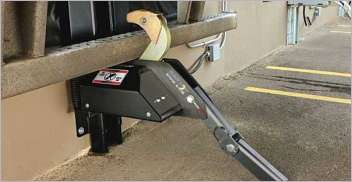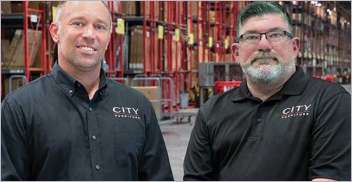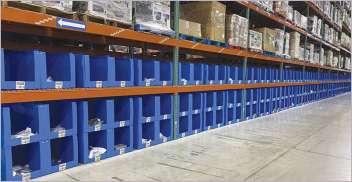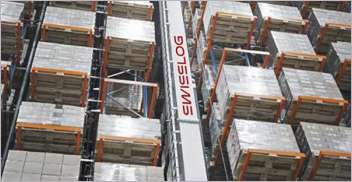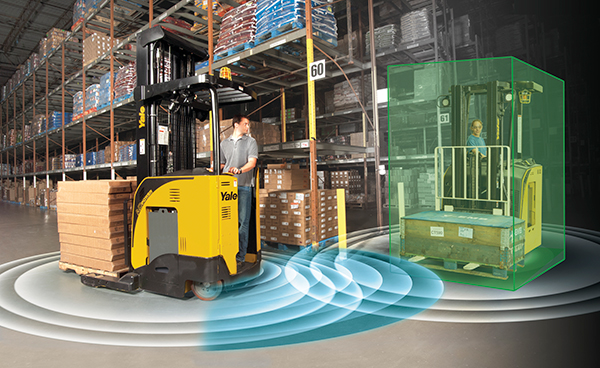

Greenville, North Carolina, 27834
United States
800-233-YALE
www.yale.com Yale Lift Truck Technologies Company Profile


The Yale Reliant™ solution is a robust, industry-first technology suite designed to reinforce lift truck operating best practices and support operator awareness, tailored to the unique challenges of warehouse operations.
It limits lift truck performance based on equipment status, location and operating conditions, while keeping the operator in control of the truck.
Yale Reliant leverages three key technologies to control truck performance not only based on equipment information, but the surrounding environment. This technology suite of advanced dynamic stability (ADS), real-time location sensing and proximity detection enables a broad range of functions, such as:
Operator alerts – If Yale Reliant detects a pedestrian or obstacle in the travel path, location-based speed limit or other condition, it triggers an alert to get operator attention and help provide additional reaction time.
Automatic slow-down – Yale Reliant activates automatic speed control based on rules specific to certain areas of the facility like ends of aisles or heavy pedestrian zones, proximity to other equipment and pedestrians, and truck load and cornering stability.
Lift lockout and hydraulic limits – Yale Reliant limits hydraulic functions, including lift, lower and tilt, to keep loads stable and moving at a steady rate. It works to avoid handling an overweight load or positioning forks too high, helping reduce the risk of tipping and load pitching.
